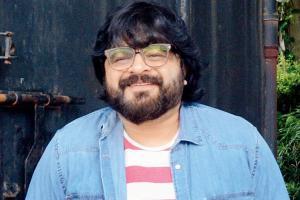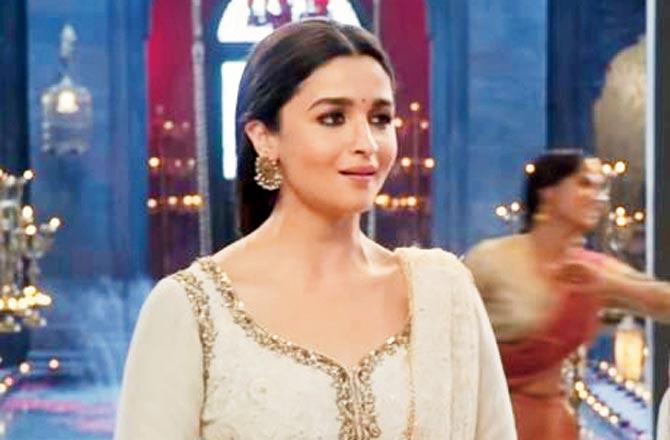Musician Pritam lets us in on his process as he discusses creating a desi soundtrack for Alia Bhatt's Kalank

Pritam
It's hard to pin down composer Pritam, especially when his film is up for release. In the midst of lending finishing touches and fine-tuning the numbers for his next, Kalank, he squeezes in some time to discuss the fast-changing design of mainstream music, creating a raag-based soundtrack for the Karan Johar production, and the role played by the media in changing the landscape of the industry's music scene.
ADVERTISEMENT
Edited excerpts from the interview:
Gully Boy could inarguably be the year's biggest album, this far. How do you perceive its success?
It was like a breath of fresh air, and the music was backed by a brilliant storyline. I can hear the album on loop. But, as a composer, I don't think it will affect mainstream music. Music of every genre has its place, and good music will always make a mark. Catering to the diverse and fragmented audience base is a challenge. It's like the '90s again, when Bollywood, pop and indie music were co-existing in the mainstream arena. In order to deliver well on all fronts, we need a united effort from composers.

Alia Bhatt in the song
Kalank depends largely on its score. The first song, Ghar More Pardesiya has a classical bent. Were you apprehensive that it may have a limited reach?
While composing music for films, the [focus is first on the] screenplay. Popularity is never a priority. Obviously, one wants the song to become popular, but we can't compromise with what is needed for the film. Ghar More Pardesiya has Alia Bhatt's character meeting that of Madhuri Dixit-Nene for the first time. She's attracted to Madhuri's enigma and goes to meet her. There is a jugalbandi, involving aalaps, between them. It is gutsy of Abhishek [Varman, director] and Karan to launch this song first. No one would consider launching a classical female-oriented song to mark the film's first impression. It encapsulates the movie's essence.
What was the toughest track to pull off?
The track between Madhuri ji and Alia, and another dance track which marks the first time that Madhuri's character Bahaar Begum dances in the movie.
How do you describe the film's score?
Kalank is based in the pre-Partition era, and the soundtrack is Indian. We've mostly used Indian ragas as the base. Few songs have folk tunes. The score has many dance numbers, and one soaring romantic track. It's something I haven't attempted before. I choose films based on my relationships with people, and build new relationships with more enthusiasm when a script is music-oriented. I love reading a script, and generally refuse to take up a film if I don't like it. Kalank won me over, and my bond with Abhishek [ was also reason to agree to it].
The originality of this soundtrack is prominent. How do you respond to the rehashing of songs today?
Trends change, so I am not worried. But, the larger problem that is fuelling this trend is that a film's content-creating unit, including composers and lyricists, are not given enough prominence. They need to be celebrated so that newcomers aspire to take to the field. It's a process that will begin when the industry takes the content- creating unit seriously. Also, the media can rectify this. Every time that you mention a song, mention the composer and lyricist too instead of only discussing the singer. If that's done, good composers will not aspire to become singers first.
Also Read: Pritam: Impact diluted, but reality TV still relevant
Catch up on all the latest entertainment news and gossip here. Also download the new mid-day Android and iOS apps to get latest updates
 Subscribe today by clicking the link and stay updated with the latest news!" Click here!
Subscribe today by clicking the link and stay updated with the latest news!" Click here!






